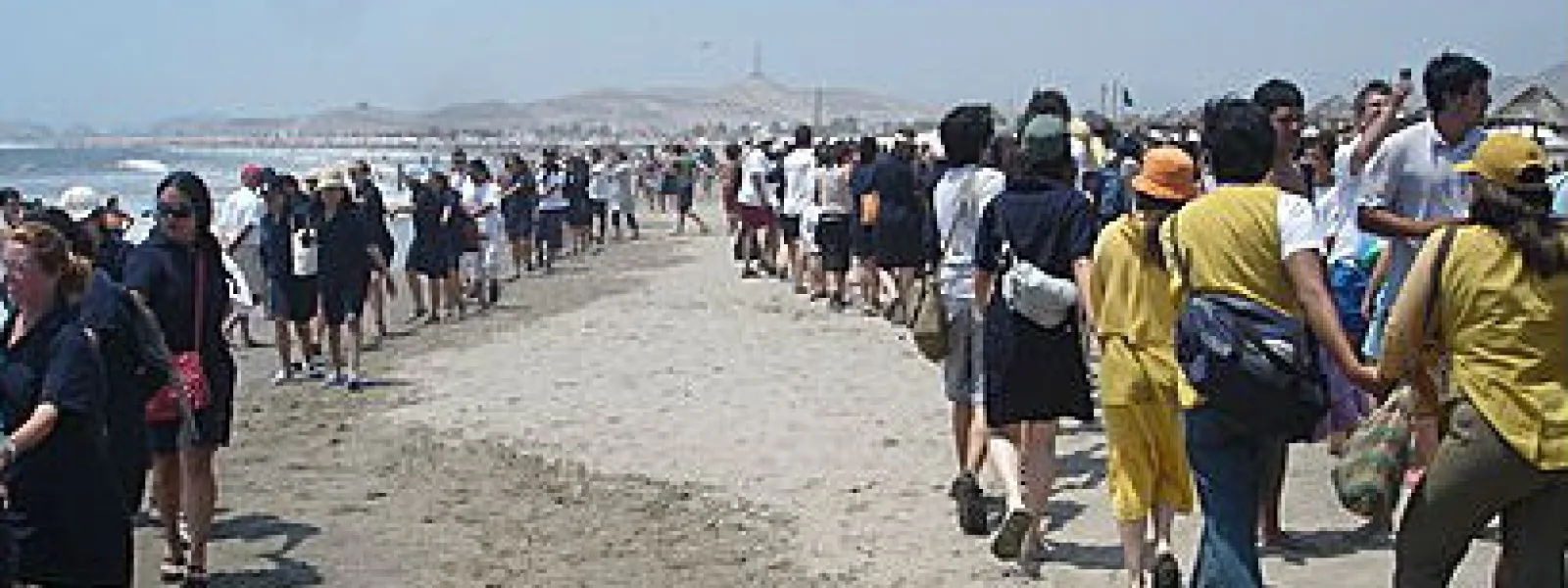
El mar es de todos/as: Cuando la playa es fuente de discriminación
By María José Veramendi Villa, legal adviser AIDA, @MaJoVeramendi
"... It is my beach just for my family,
out of here, this is restricted area,
a whole beach just for my friends,
only people like me will be welcome. "
(Fragment is my beach , lyrics and music of Chabelos)
Every December, when to start the summer in the southern hemisphere, the inhabitants of Lima (Peru) are prepared for the heat and enjoy the cold sea in the South Pacific. Once the first rays of sun, many / as undertake course to the beaches north and south coast of Lima.
Unfortunately, the summer also a story that repeats itself every year is given discrimination on the beaches , stark reality reflected, mockingly, in the song of the Chabelos.
The Law 26856 , enacted by the Peruvian Congress in December 1997, provides that the coastal beaches are public property, inalienable and use and establishes areas restricted domain. This means that in Peru THERE private beaches . While developments adjacent to the beach are allowed, there must be, at least a thousand yards away a path to free entry to it.
Unfortunately, on the beaches of Lima we see many resorts, housing developments and clubs under a slogan of reserve and exclusivity intended to privatize a natural resource which is for use and enjoyment of all / as: the sea . Some social clubs and buildings surround the entire perimeter of access to the beaches by the arrival of the sea is an almost impossible task.
As this could cite a whole list of obstacles to reach vacationers enjoy the long - awaited sea in some areas a privileged social class has decided to reserve for personal use .
Unfortunately, the situation does not end there. Who actually manage to overcome the obstacles and reach the sea, they encounter security guards who care revenue "private" beaches. Deny access by their standards, color of "suitable" skin or who do not appear to be a "wealthy" social class under the excuse that they are not residents of the resort or club members.
Discrimination in Lima society reaches its highest point in spas where domestic workers can only swim in the sea at certain times, usually from five in the afternoon. In addition, employers are forced to wear uniforms on the beach and in social clubs.
The Supreme Decree 004-2009-TR established that constitutes an act of discrimination to domestic workers required to wear the aprons, aprons or any other distinctive garment spaces or public places such as parks, plazas, beaches, restaurants, hotels, shops , social and similar clubs. However, it appears that the law does not apply to certain beaches.
In 2007, in the exclusive resort of Asia (south of Lima), an operation called "Employee Daring" was performed. In it, nearly 700 people , including domestic workers, journalists, human rights activists and artists, among others banded together to form a human chain in front of the sea and claim the end of racism at the spa.
Five years of operating, would give the impression that little has changed and that despite having legal protection and ratifying international instruments of human rights protection prohibiting discrimination, it washes the shores of Lima same way as its cold water.
That part of Lima society that encourages or is indifferent to such acts of discrimination requires lose its exclusivity cloud; You need strong authorities to require the strict compliance with the law and a dose of reality and humility to recognize your neighbor as a person with the same rights . Only in this way it will be possible to live in an egalitarian society where the unquestionable fact of nature that respects the sea is all / as .
Video Operation "Employee Audacious" (2007). Source: YouTube / Kinuatv
